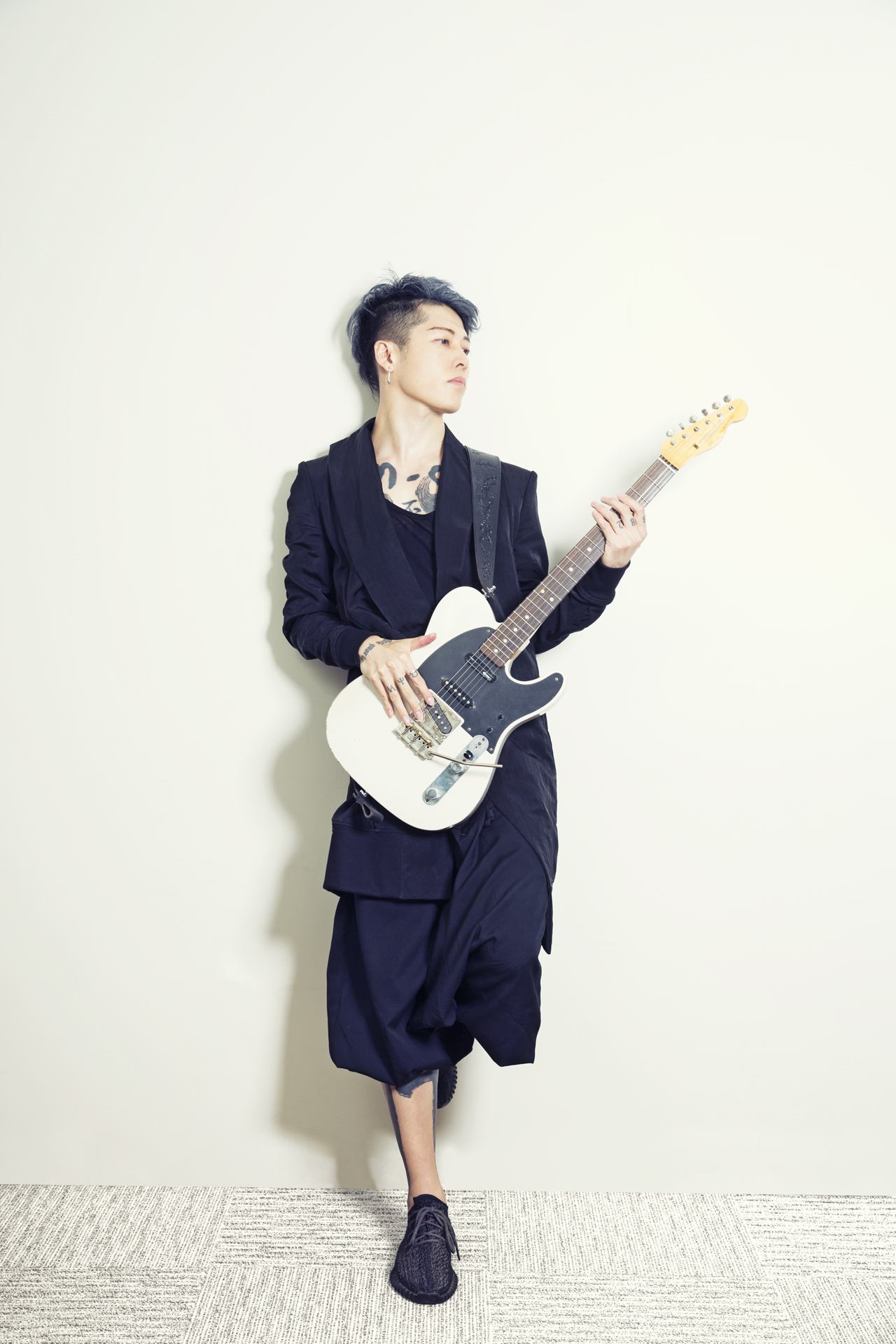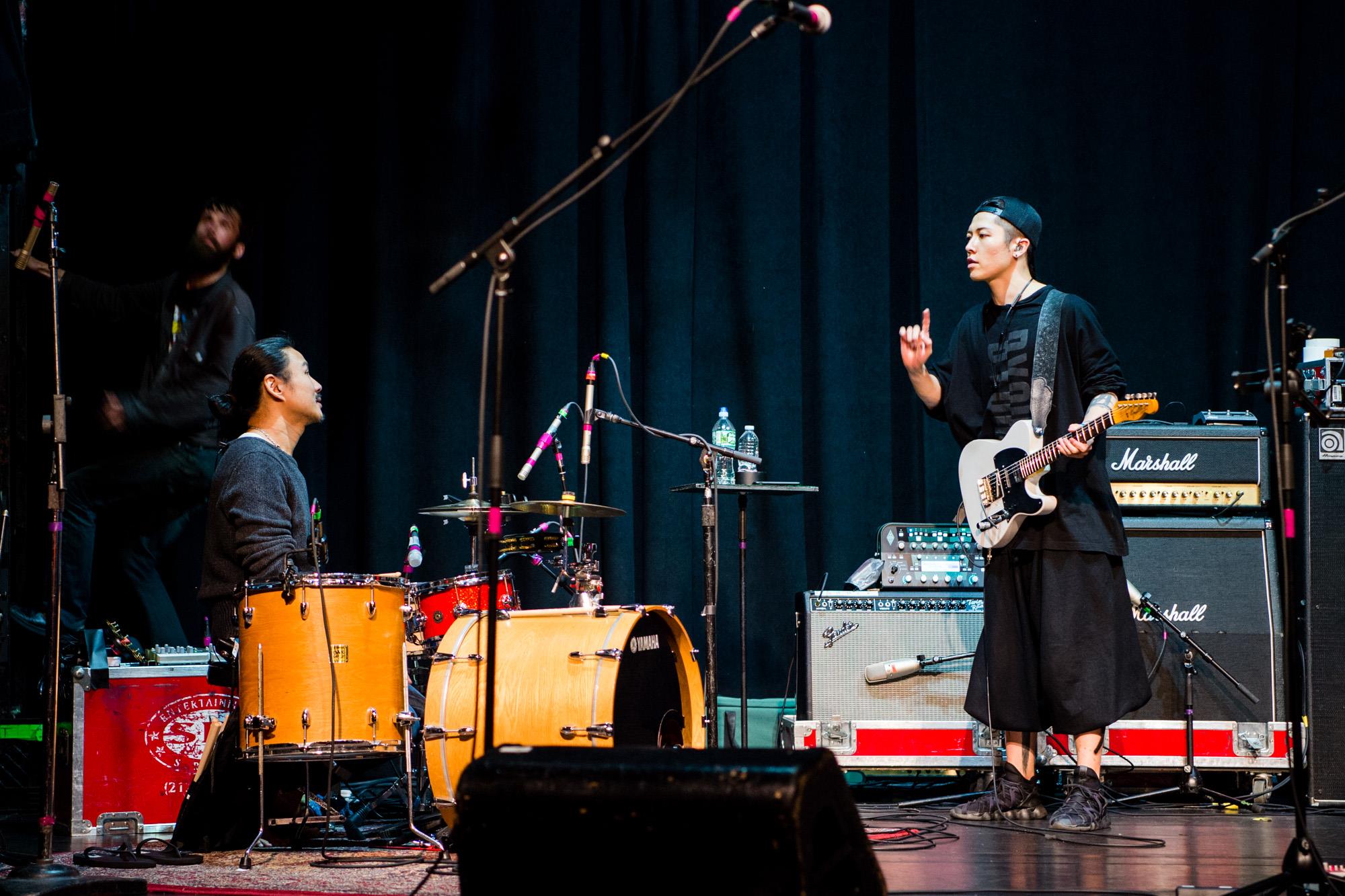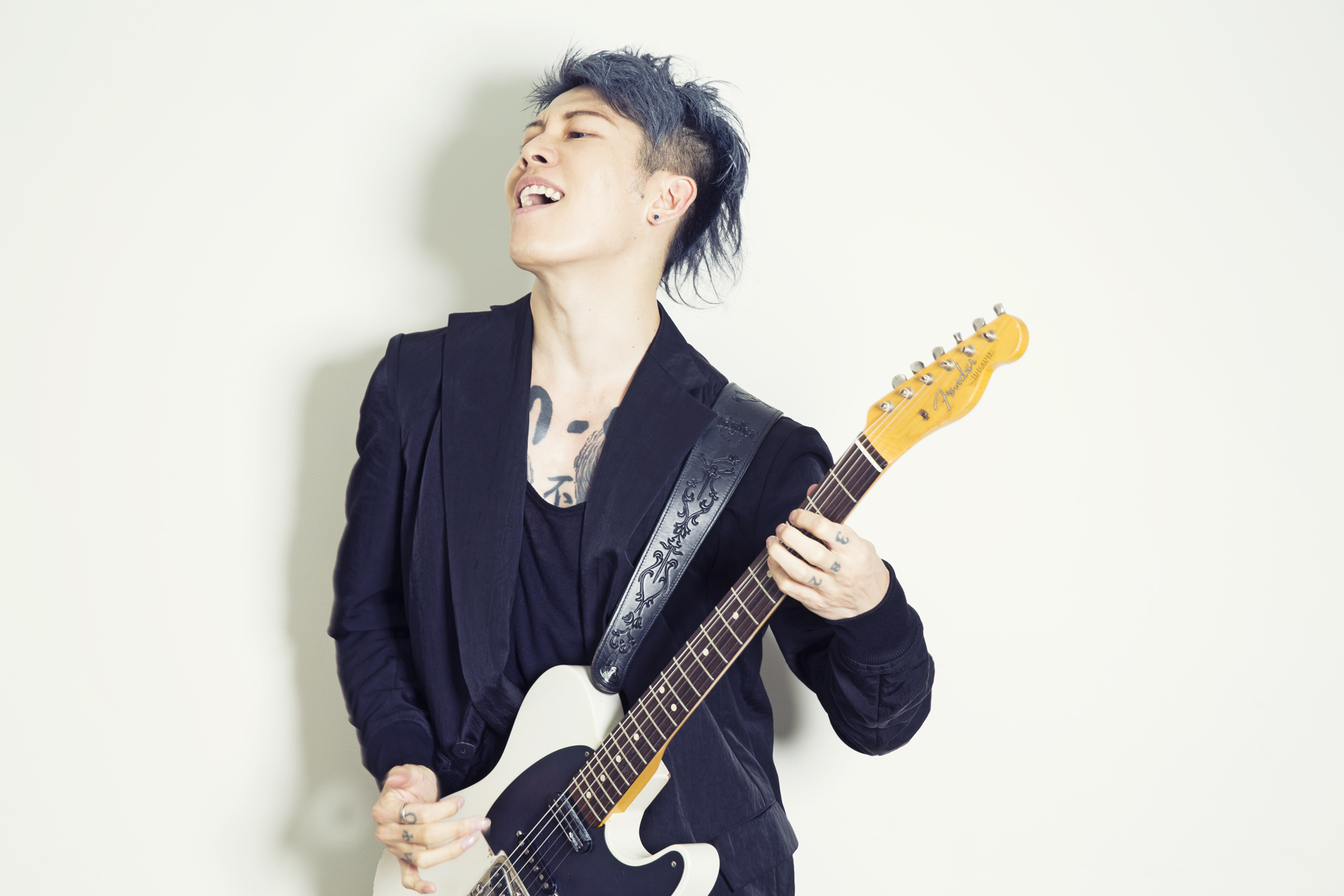Original (Japanese) source & credits : highflyers.nu
Text: Kaya Takatsuna / Photo: Atsuko Tanaka / Photo Retouch: Koto Nagai
English Translation by Nicki A. (@uchiakebanashi)
One cannot realize dreams that have not
been dreamt of. Those who have passion and
determination, are generous and know
the joy of sharing with others are those who will achieve
success.
For our final interview with MIYAVI, we
are pleased to have him share his view regarding his
extensive activities around the world,
his learning method for studying a foreign language, the
difference between Japan and the rest
of the world, and also on the things that he finds necessary
today. MIYAVI, as a UNHCR (United
Nations High Commissioner for Refugees) ambassador, was able to experience being in close contact
with children living in refugee camps. These experiences and the fact that he is a father of two
daughters has made it clearer to him on how important it is to teach foreign languages and ethics as a means
to create a future without conflict. We also got to hear
about his opportunity to reflect on
various things, his successes, the people he believes to be the
most successful, and also on the dreams
that he wishes to realize from now on.
Education is the most important thing
to have next to life essentials. Japan needs more education
on foreign languages and ethics.
Wishing for Japanese to go outside and taste the different flavors
and cultures of other countries.
What would you say is the most important thing for you as a guitarist?
Being one with the guitar. That’s
where all my performances begin from.
Do you feel that the amount attachment between you and your guitar changes subtly by
the day?
The attachment that I feel is usually
about the same though there was a time when I did feel like we weren’t one (laughs). I can’t
remember though. Speaking of “becoming one with the guitar”, it was probably around the time when I
first met BOBO, changed labels to EMI and released “WHAT’S MY NAME” (released in
2010), that I truly became so. Of course, as I’ve still got some ways to go with the guitar and also
with my language studies, I’m always practicing every day.
Your English is very proficient
that you sound like a native speaker and this is despite having started your activities overseas
only after becoming an adult. How long did you practice your English for?
I really studied a lot (laughs). I went
to America for 3 months when I was 25 and while I was there, I made sure to not hang out with
Japanese people at all. Other than that, I made friends who are native speakers. In the end, be
it with the guitar, soccer and also language studies, it all comes down to how much passion I am
willing to put into it.
You are currently active in both
Japan and overseas. What would you say is the biggest
difference between Japan and the rest
of the world?
Even though you say “overseas”, it
includes a lot of different countries. Mainly, the saying that “Japan is the best!” is not
something that can be said when one has only ever been in Japan. I believe that one can only truly say for
the first time, “Japan is nice” once they have really set out into the world and experienced the
different flavors and cultures of other countries. We Japanese are living the peaceful life
in a safe and rich country where everything is basically in order with trivial kinds of things
becoming news (laughs). Therefore, we shouldn’t only be critical, we should also be thankful
towards those who built this country, particularly our ancestors and also those who are
working hard on the front lines.
What do you think of Japanese
people nowadays?
I believe that we should raise the
quality of our basic education. After being introduced by Angie(Angelina Jolie), I am now working with
the people of UNHCR, an organization known as the High Commissioner for Refugees under the
United Nations. Presently, for the people in refugee camps living in life or death
conditions, the most important things for them are essentials such as food, water, medical care and
sanitary conditions. Despite their circumstances, they still see education as the next most important
thing after these life essentials. In Lebanon and Thailand,
the children in refugee camps are
provided with education on philosophy and morals. This not only serves as an investment for their
future but can also help as a deterrent for future conflicts.
Although it’s the same in Japan,
Japan isn’t exactly ingrained with religious beliefs. Putting aside knowing what is right or wrong, I don’t
believe that young people today have enough education on what is appropriate in forming their
foundation as a person. Other than that, I also think there’s not enough education in
foreign language studies. I definitely think that it’ll be better
to increase education on both foreign
languages and ethics.
Have you ever had thoughts like “If
only the world was more like this”?
I’d, without a doubt, like the world
to be a place without conflict. I’d like for it to definitely not be right to go to war for the sake of
money and for that money to not hold the biggest value in a person’s life. I believe that this is
all connected to education. It might probably be because there aren’t much opportunities to teach
the values of what makes for a “decent life”. This is our
obligation as adults and for that
reason, I feel that we should raise the salaries of educators. It’s not about paying them for the amount of
effort they’ve put in in the difficult job of forming a person’s character. It’s a matter
on a whole other level in the sense that these children will be the ones to build their countries’
future. For me, education is the most important form of creation. It is after all, what we
would be teaching our totally pure children. If we teach them that it’s okay to kill another
person, it’s only normal that things will become that way. It’s important that we teach them firsthand
the definition of living a happy life even without having anything. If we don’t do so, we will
never become happy no matter how much time have passed.
You have two daughters. What is the
most important thing when it comes to raising them?
That’d be communication. We really
talk a lot. Children are always watching us and they feel
more than what their parents believe
they do. It’s just that their vocabulary is still limited when it comes to expressing their feelings.
That’s where we have to try to see from their perspective and listen to what they’re saying.
It’s also important to properly explain everything to them. If we neglect that part, some issues will
definitely arise somewhere.
You’re a great dad, aren’t you?
The time that I can spend with them is
actually quite limited so I really treasure my time with
them. There are a lot of ways to raise
children and I find fathers who come back home at regular hours and take baths with their
children every day really amazing. Despite that, I’m really happy that I’m able to show my children the
things that I do for work. They come to my live shows and I get to have them listen to my work. I’m
really happy that I get to show them that their father makes a living by doing these things
for the family’s sake and that their father is working
towards making the world a better
place.
Well then, what do you believe is important in making one’s dream a reality?
Having dreams. If you don’t have
dreams, you won’t be able to turn them into reality. You’d
have to have an intense desire to make
them a reality and carry them out.
Then, what would you call a chance?
And what should one do in order to not miss that
chance?
Chances are just chances. Although this
is corny to say, in order to not miss a chance, one should habitually be prepared for it.
What is the difference between a
successful and an unsuccessful person?
Whether or not one can in the end, stay
generous. It’s something that I’m also trying to learn. I believe that the results of being able
to share your happiness with others and combining this with passion and determination, will
surely take shape in various manners. And while short-term
successes are probably something that
everyone can acquire right away, for me, the true meaning of success is, more than
anything, being able to stay generous, even in spirit.
In your opinion, who is the most successful person to you?
That’d be Grandpa and Grandma.
They’ve already passed away but even though they were not well-off, they were very loving towards
each other and laughed a lot until the end. I think it’s an ideal way of life and is the best. No
matter how rich they became or famous they became, even while suffering and having people
around them taking their own lives, they continued living their lives while leaving the rest to God’s
will. It’s just ideal.
What is “success” to you?
Being able to ignite every passing
second and well, being able to die with a smile on my face.
Lastly, please tell us if you have
any dreams that you haven’t fulfilled yet. Also, when do
you think that you would be able to
fulfill them?
Unfulfilled dreams… That’d be to
have a world that is truly free of conflicts. But well, where
there is night, there is day; there are
men and there are women; and where there is light, there is darkness. Sometimes when I ponder on
it from that point of view, there are honestly some parts of me that are unsure on whether
or not the day will come when conflicts will truly disappear. Even so, I wish that when
I’m playing my guitar, I would be able to stop the fighting among the people around the world, even
it’s only for a second, and also to be able to create a moment where they would be able to feel
peace. In that sense, at least when I’m playing the guitar, the people in front of me are
not in conflict with each other. I hope to deliver that to the people of the world and I’ll try to
make it a reality until the day I die.
You’ll definitely be able to fulfill them.
I’ll work hard.
Translation by Nicki A.
(@uchiakebanashi @onakabel)













